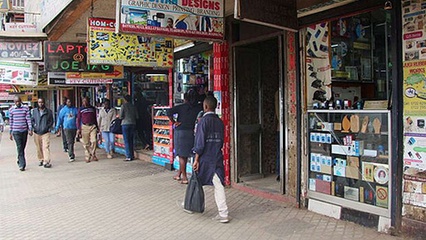Why Borrowing Is Getting More Expensive for Kenyan Businesses

The report highlighted a worrying trend regarding borrowing in the country...
✨ Key Highlights
A new Moody's Ratings report indicates that borrowing has become significantly more expensive for Kenyan businesses due to tough market conditions, inflation, and weak policies, impacting their ability to secure affordable credit. The report specifically highlights government overborrowing from local sources as a key driver of rising interest rates.
- According to Moody's, Kenyan debt carries a spread of around 500 basis points above U.S. Treasury bonds, reflecting a higher risk of lending to Kenya.
- Senior Vice President Lucie Villa from Moody's stated that "Borrowing costs are high across the board," affecting banks, non-financial companies, and sovereigns in Kenya, Nigeria, and South Africa.
- The report suggests that improving economic policies, better financial regulation, and broader access to credit are necessary to sustainably reduce borrowing costs in Kenya. Meanwhile, Treasury Cabinet Secretary John Mbadi expects to raise Ksh149 billion from privatization to fund this year's budget.
Continue Reading
Read the complete article from Kenyans
Part of the Day's Coverage
Kenyans Face Higher Power Bills, Rising Borrowing Costs, and Mass Job Losses - September 2025
Kenyans will face significantly higher electricity bills in September 2025, as the Energy and Petroleum Regulatory Authority (EPRA) announced an increase of Ksh4.42 per kWh. This adjustment is attributed to rising fuel energy costs and foreign exchange fluctuations. A new Moody's Ratings report indicates that borrowing has become more expensive for Kenyan businesses due to tough market conditions and government overborrowing from local sources. These conditions are impacting businesses' ability to secure affordable credit. In a related economic development, Kenya faces significant job losses as 140 companies are closing down. An initial 60 companies have already been dissolved, with another 80 slated for closure, impacting various sectors across the country.






